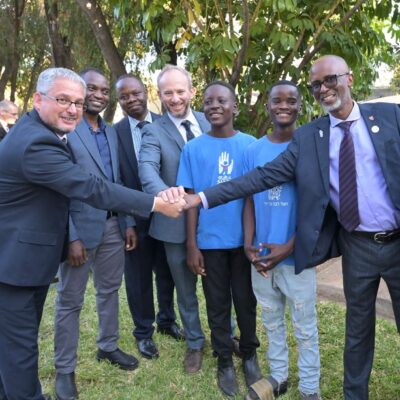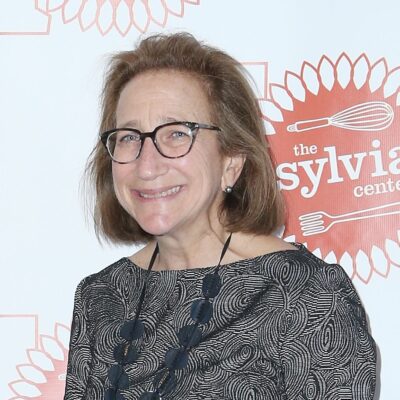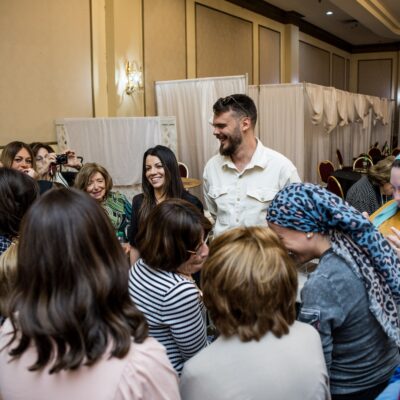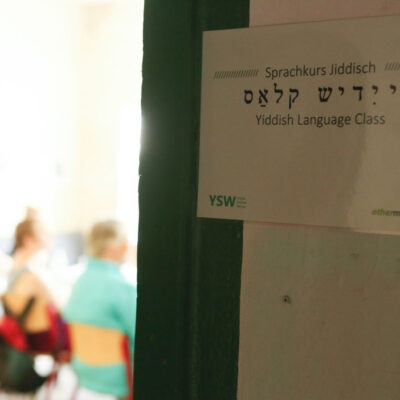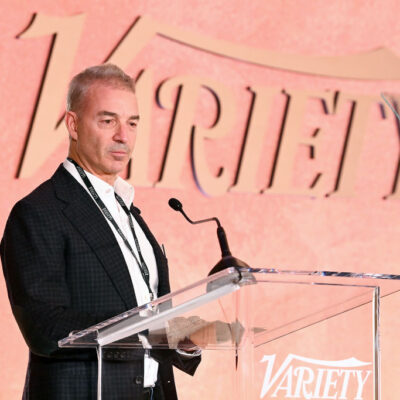Opinion
READER RESPONDS
What the data reveals about the parent-camp partnership
Rebecca Starr’s piece in eJewishPhilanthropy (“The covenant of overnight Jewish summer camp is broken, and it must be restored,” Aug. 18) is right to point out that parents today expect more regular communication from their kids’ summer camps.
I’m the senior director of learning and research at the Foundation for Jewish Camp (FJC), and this article struck a personal chord. I was curious and scoured the data FJC collected from 1,500 parents across 70 Jewish overnight camps this summer. The results are eye-opening.

Courtesy/Foundation for Jewish Camp
Campers sing and dance at Camp Yachad at the JCC of Central New Jersey.
One in 10 parents told us they wanted daily updates about their child; another third wants news about their child every two or three days. Only 20% of parents expressed comfort with hearing about their kids less often than once a week. Parents told us they value photos, short videos, end-of-day notes from counselors and regular director messages about camp life.
As one respondent put it: “Loved the director blogs. Read them every night. The Facebook and Instagram posts made me wish I was at camp. I do wish more photos were posted daily.”
Another family said: “This is our fourth summer and this was, by far, the best summer from a communications standpoint! From the daily blogs to the weekly Shabbat emails — and the additional updates about Israel — it was all so thoughtfully done.”
Every piece of communication from camp is a window into the magical summer that kids are having. For many parents, it provides reassurance that their kid is having a good time, allowing them to share in the joy of Shabbat services, lakeside adventures, or dance parties.
At other times, however, an isolated photo, out of context, can raise the question, “Is my kid having fun?” The answer is almost always yes; and yet parents can become stressed when they engage in forensic analysis, looking at an isolated snapshot for hints about their child.
In many ways, the trust and partnership between parents and camps is thriving. Nearly 90% of parents rate camps as excellent or good in responsiveness, leadership, and health and safety. Jewish camps and their leadership continue to earn parents’ trust, even amid rising expectations.
But a desire for increased communication is leading camps to hire staff dedicated solely to parent outreach. Some directors spend much of their time in the office responding to parents. These resources could instead be allocated to the in-the-moment experience of camp itself.
Parents’ desire comes from a deep place of care for their children, and understandable anxiety amid rising antisemitism, ongoing war and the devastating floods that impacted camps in Texas. In such a climate, it is natural that parents seek more frequent updates.
Yet the heart of camp is lived in real time, not in sporadic images. The most important growth often happens between the posts: during cleanup after a muddy hike, at a late-night conversation in the bunk, or in the moment a new friendship is born. A balanced approach recognizes that much of the magic happens off camera, while keeping families informed and in the loop.
Just as children thrive when they unplug at camp, parents can thrive when they unplug from daily updates about them.
Camp is meant to build independence — not just for kids, but for families. Ninety five percent of families report that having their child unplug is a very important purpose of camp. The irony here is that as children learn independence at camp, many parents have developed a dependence on constant updates. For parents, camp can be a meaningful opportunity to cultivate confidence in their children’s independence, strengthening the autonomy muscles of both kids and their loving caregivers.
Sending children to summer camp is part of intentional Jewish parenting. Perhaps the greatest gift we can offer families is not only keeping children safe and thriving at camp but also giving parents’ permission and encouragement to step back, breathe and let camp work its magic. This is the covenant of camp.
Nila Rosen is the senior director of learning and research of the Foundation for Jewish Camp.


